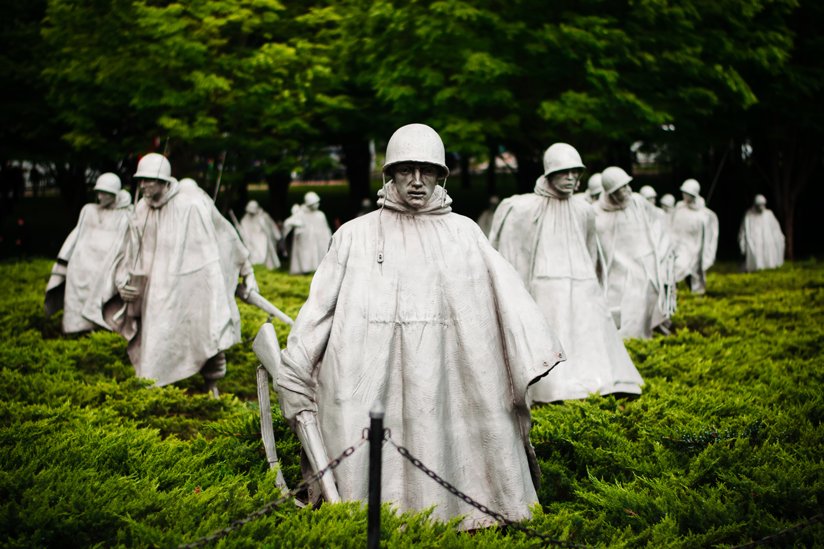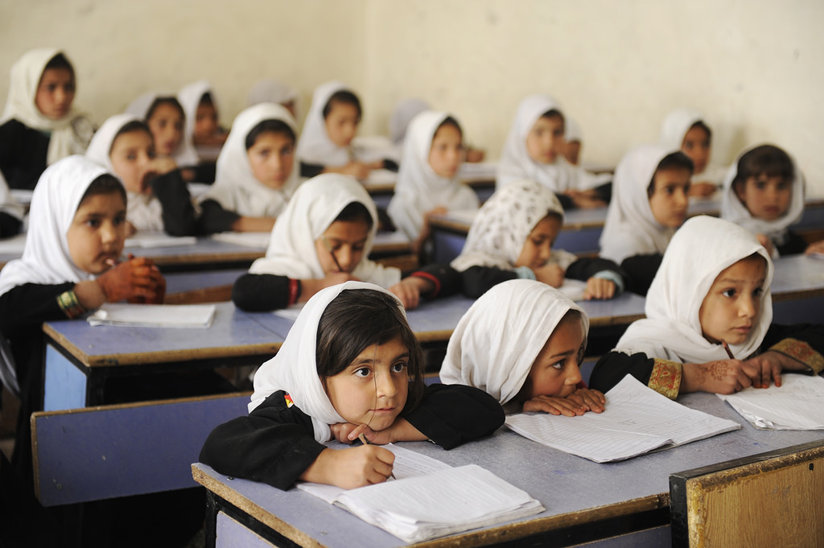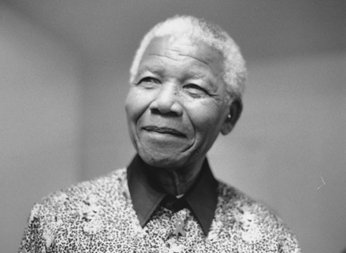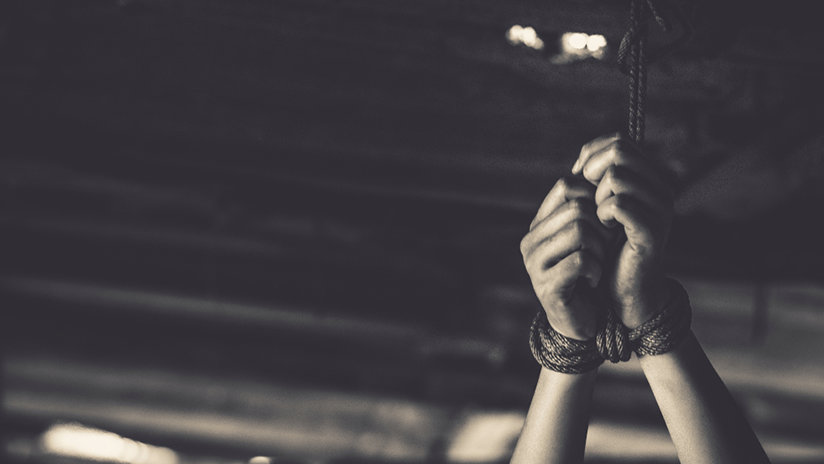How the Right to Education Can Answer Our Troubles
In the last 2,000 years, a conservative estimate places the number of those killed in religious wars at 193 million. That is close to three times the number who lost their lives in both World Wars combined.
The human race, it seems, has been in conflict since time immemorial, and much of the motivation for those conflicts has been of a religious nature.
Spanning the last 3,400 years, there have been a recorded 268 years of peace.
Two hundred and sixty-eight years.
That, very simply, translates to just 30 days each year when we have not been at war with one another.
At the end of the Second World War, 51 member nations signed the Universal Declaration of Human Rights. This extraordinary undertaking was initiated and ratified so that all member nations could work together to ensure that persecution, genocide, racial division and religious intolerance could never again bring about the catastrophe that devastated the world and left over 90 million dead.
And yet, in subsequent decades, we have seen the Cold War, the Chinese Civil War, wars in Korea, Algeria, the Sudan, in Cuba and Vietnam, in Afghanistan, Iraq, the Persian Gulf, Israel, Palestine, Rwanda, Serbia, Croatia… and the list goes on…

With good hearts and good intent, those member nations signed the Declaration, and yet since that day—70 years ago, the 10th of December 1948—there have been only 26 days of peace.
Twenty-six days of peace.
Cumulatively.
Since 1948, a further 142 nations have added their signatures and support to the Articles of the Universal Declaration. A total of 193 nations are now members, each of them having given their pledge that they will support, adhere to and apply the rights and resultant freedoms, exactly as outlined in all 30 Articles.
It raises the question—certainly for me—why such widespread and basic violations of those Articles is still pandemic across the globe.
Why do we still see war, poverty, religious intolerance, persecution, political upheaval, civil conflict, human trafficking, crime, and illiteracy?
Could it perhaps have something to do with understanding?
Could it perhaps have something to do with the fact that governments do not make the Declaration known, or—even when they do—they are attempting to make it known to individuals who have not been educated, who cannot read, cannot understand, and thus cannot demand that they be treated according to those very tenets laid down before them?
Perhaps there is a connection here.
Without education, there would be no culture.
Yes, you might say, in developing countries, in the Third World, of course there are going to be situations where people cannot read, where they cannot understand such things… but not here, not here in the Western World with our schools and colleges, our universities and esteemed halls of learning…
A recent survey indicated that approximately 65 percent of adults in the UK were functionally semi-literate.
That means they cannot understand their mobile phone contract, let alone their mortgage. It means—no exaggeration—that there are hundreds of thousands, millions of adults in the UK who choose what to eat based on the pictures on food packaging, simply because they do not understand the ingredients.
In a survey in Greater London, it was found that seven out of ten adults were so lacking in confidence regarding their reading skills that they were not willing to read a bedtime story to their own children.
So no, this does not only apply to the Third World, to developing countries, to war-torn zones of conflict where education is lacking due to a schoolhouse being bombed flat to the ground.
It applies even in my home, the United Kingdom, where citizens of this country—even if they were given a copy of the Universal Declaration of Human Rights—would be hard-pressed to understand it, let alone apply it.
And then we look at the Articles and find #26: The Right to Education.

Culture is defined as the mode and thought of feeling encouraged by education. It suggests an aspiration towards, and an appreciation of higher intellectual and aesthetic ideals.
That is not my definition, but the definition I found in a dictionary I use every day as I write.
Such an idea suggests that without education, there would be no culture.
And where would society be without culture?
I think it would be no society at all.
I think it would perhaps look a little like the society in which we live today.
We know—fundamentally, inherently—that everything begins with education.
Without education, we are lost.
Literacy—the simple business of reading and writing—is the very backbone of education, and, to a large degree, of life.
Literacy promotes communication; literacy engenders self-confidence, tolerance, patience, work ethic, pride in one’s own production, one’s own value in a society.
There is an incontrovertible link between literacy and honesty, an inescapable link between illiteracy and criminality.
Education opens the door to philosophy and religion, a better understanding of one’s own place in the grand scheme of things, a heightened awareness of one’s own humanity, one’s spiritual nature, and the way in which we all coexist within the universe.
We are indeed blessed that we live in a society where education is available. Whether we choose to avail ourselves of it or not is down to each of us as individuals. But at least we have a choice.
Those amongst us who are educated and literate have to shoulder the responsibility of not only understanding the vital necessity of education, but promoting and furthering that message throughout the world.
Reading is where it all begins. Without the ability to really read and to understand what we are reading, then we are lost as readers and, more importantly, as human beings.
Readers are better advised, better informed. They are more tolerant and patient. They have fewer preconceptions. They appreciate other cultures, religions, philosophies, ideas, concepts. They are slower to judge. They are more accepting and forgiving.
We dream because we have imagination, and we can imagine because someone somewhere—a parent, perhaps a friend, or, more often than not, a teacher—showed us there were other worlds that existed beyond the walls of a classroom, that there was a wide universe to discover, that we need not be afraid of those who did not speak our language or believe in our God, that all arguments and conflicts could be resolved with communication, and that the better we studied, the more we read, the more able we would be to express our viewpoints and appreciate the viewpoints of others.
That is what makes a human being special.
That is what makes us the unique and extraordinary individuals that we are.
That basic human right—the right to education—carries with it a responsibility to see that the education given is applicable, relevant, of benefit not only to the student, but to the very society within which that student will play a vital role as an adult. And, beyond that, education opens the door to philosophy and religion, a better understanding of one’s own place in the grand scheme of things, a heightened awareness of one’s own humanity, one’s spiritual nature, and the way in which we all coexist within the universe.
It carries with it the responsibility of seeing that others recognize and acknowledge their own human rights—each and every right as outlined in the Declaration.
But what can I do? I am just one human being amongst seven billion.

So was Gandhi. So was Martin Luther King. So was Nelson Mandela. So were each and every one of the suffragettes who fought for the right to vote. So was Eleanor Roosevelt, the driving force behind the Universal Declaration itself.
Soon one becomes two, two becomes ten, ten becomes a hundred… and a community becomes aware, educated, enlightened, empowered.
If a man does not understand his rights, how can he insist that they be applied to him?
If a woman does not know her basic human rights, how can she know if those rights are being violated?
If we cannot read, we cannot learn. If we cannot learn, we remain ignorant.
Ignorance, demonstrably, is right there at the very root of intolerance, racism, religious persecution and cultural division.
Make someone “different” and you sow the seeds of hostility and aggression.
Make someone ignorant and you make them a slave.
If we want a sane, happy, healthy society, then we must understand that tomorrow’s society is today’s children.
A child is not born with an inherent sense of racism, intolerance and cultural “difference.” A child does not instinctively discriminate. A child does not see black or white, Muslim, Catholic, or anything else. A child merely sees another friend.
We must invest everything we can in improving educational standards, and thus do our part in eliminating the lack of understanding that lies beneath all of Man’s problems. We must invest heart and soul into changing global ignorance into global awareness.
We have a mission to make human rights for all an everyday reality, and that mission must surely begin with education.










